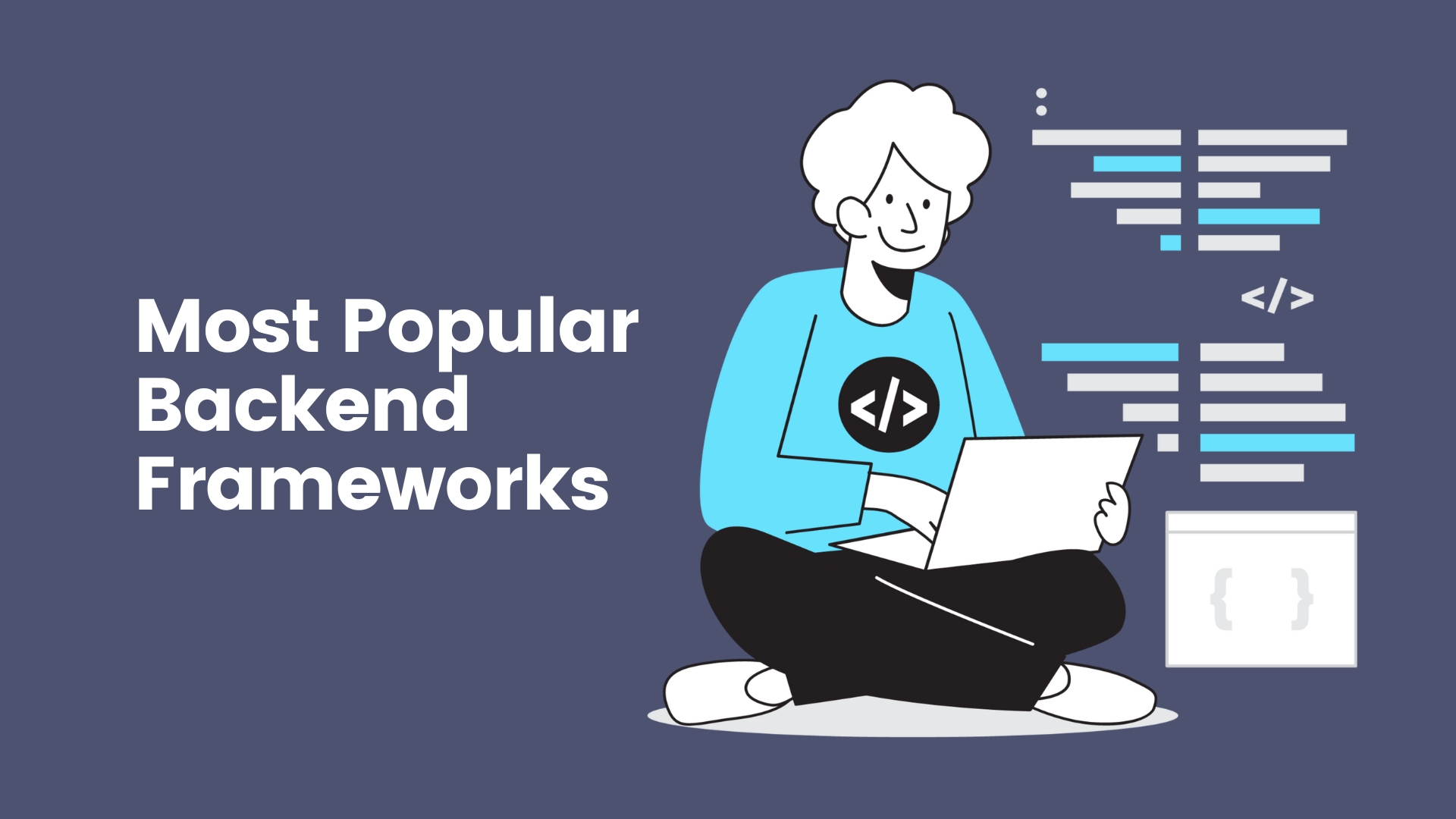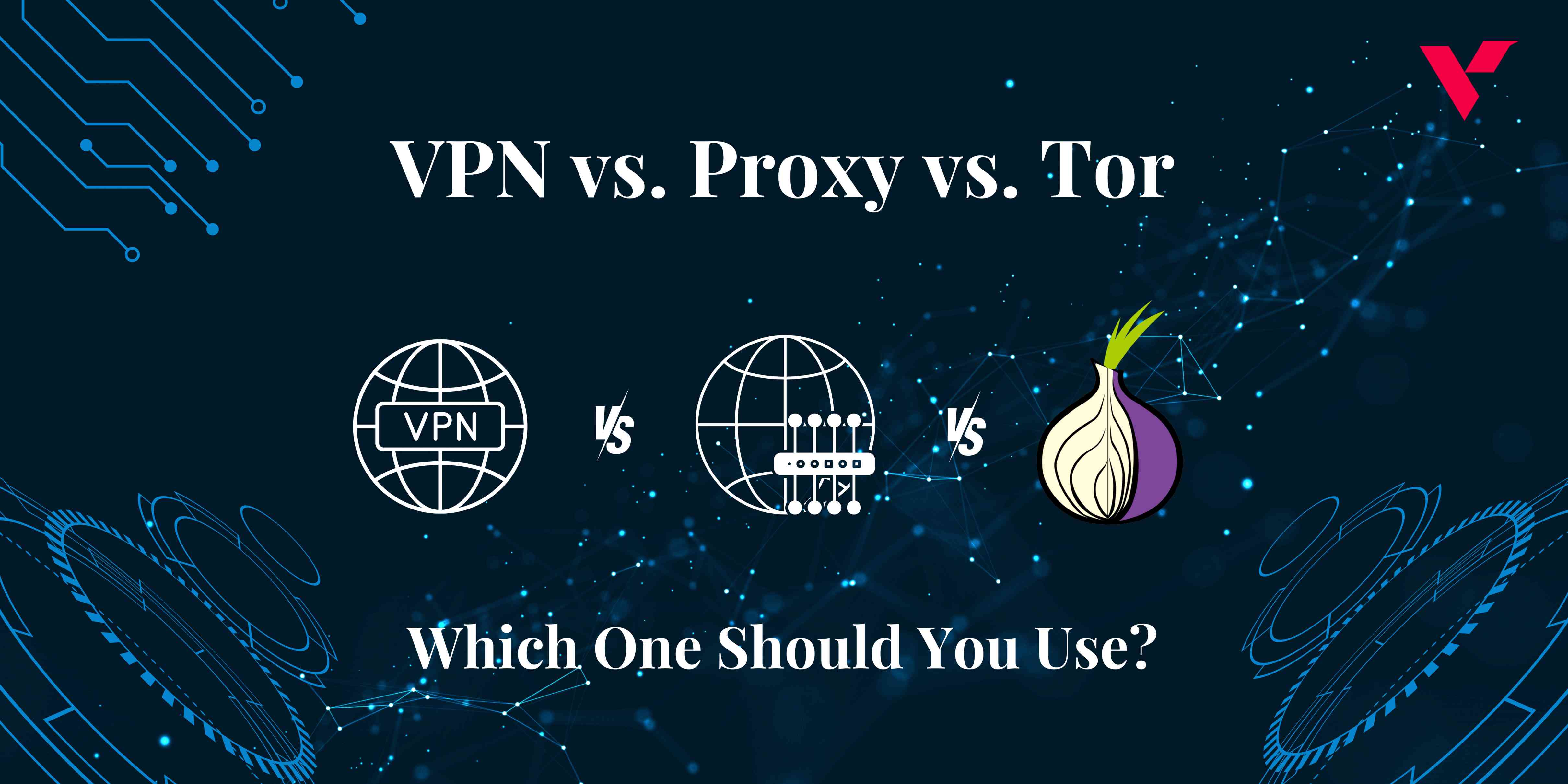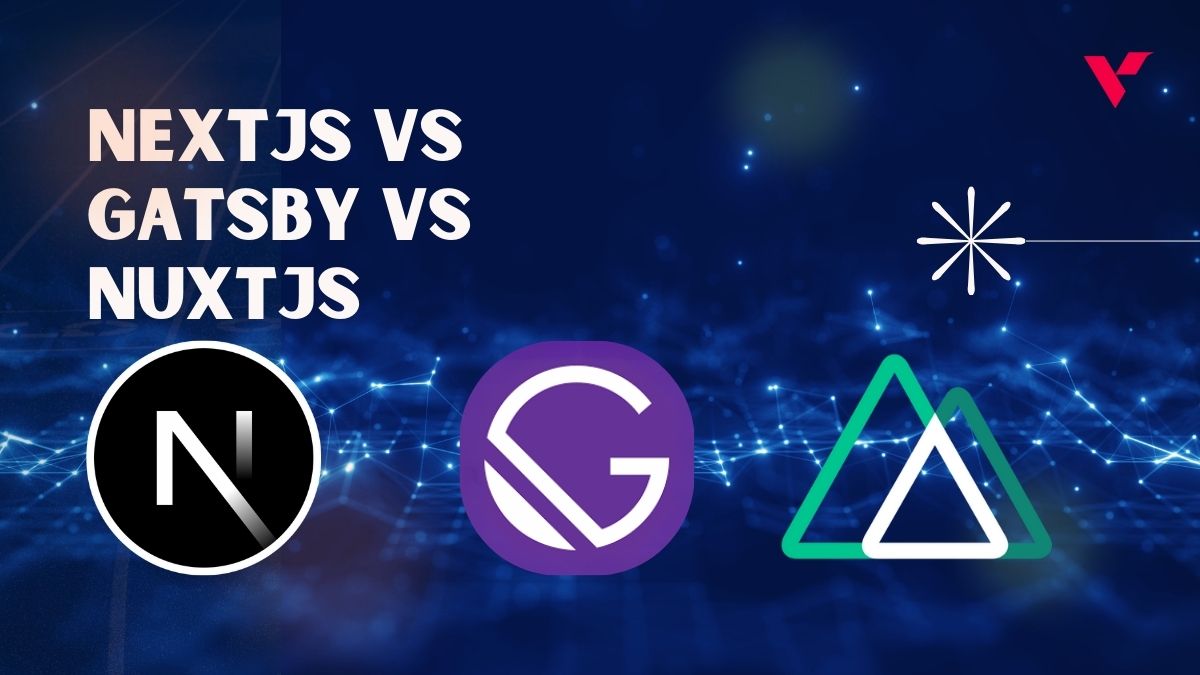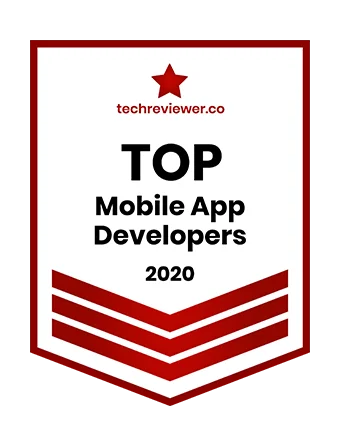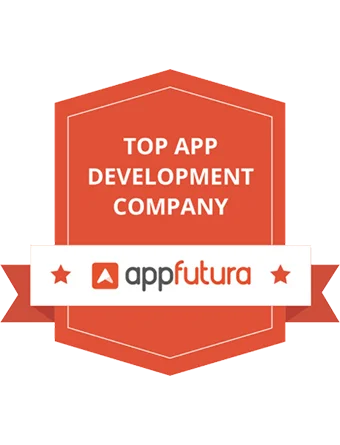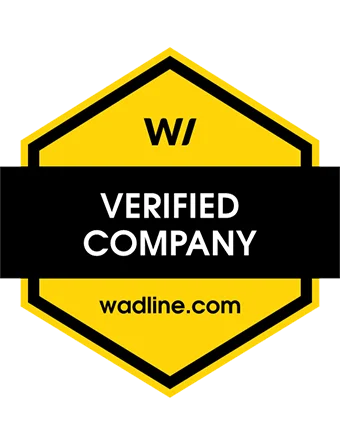Popular Tools by VOCSO
Web frameworks have evolved into a vital component for developing robust and intelligent web-based applications for both the front end and back end. It establishes essential online phases and encourages the complication of inventions.
There are two major types of web development: frontend development and backend development. Developers who work on the backend of web applications create server-side code. While the frontend component communicates with the user.
The front end may or may not operate in isolation from the backend, but a good backend must be paired with the front end in order to develop an online application that works effectively. The major dilemma for the developers is which Framework to choose for web development because both frameworks have their own Pros and Cons.
A backend developer’s role differs from that of a front-end developer. A frontend developer is concerned with how the program will look, whereas a backend developer is concerned with servers, databases, and how the two ends are connected and interact with one another.
With so many options available in backend platforms, it’s difficult to choose a reasonable one that provides the most spectacular flexibility and execution.
Table of Contents
What are backend frameworks?
Backend frameworks provide the foundation for developing web applications. They contain the code necessary to handle common tasks like connecting to a database or sending emails. This allows developers to focus on the unique aspects of their applications.
There are a number of different backend frameworks available, each with its strengths and weaknesses.
Backend frameworks are constantly evolving to meet the needs of modern applications. In 2023, we can expect to see even more innovation in this area, with new frameworks emerging to address the challenges of big data, AI, and other emerging technologies.
The Most Popular Backend Frameworks for Web Development in 2023
There are several backend frameworks to choose from, making it difficult to find the best one for your project.
To assist you in getting started, below is a list of 8 of the most notable web backend frameworks that you can look forward to in 2023. These are the most popular and recommended by developers all across the world.
The top 8 backend frameworks for web development in 2023 are as follows:
1. Ruby on Rails
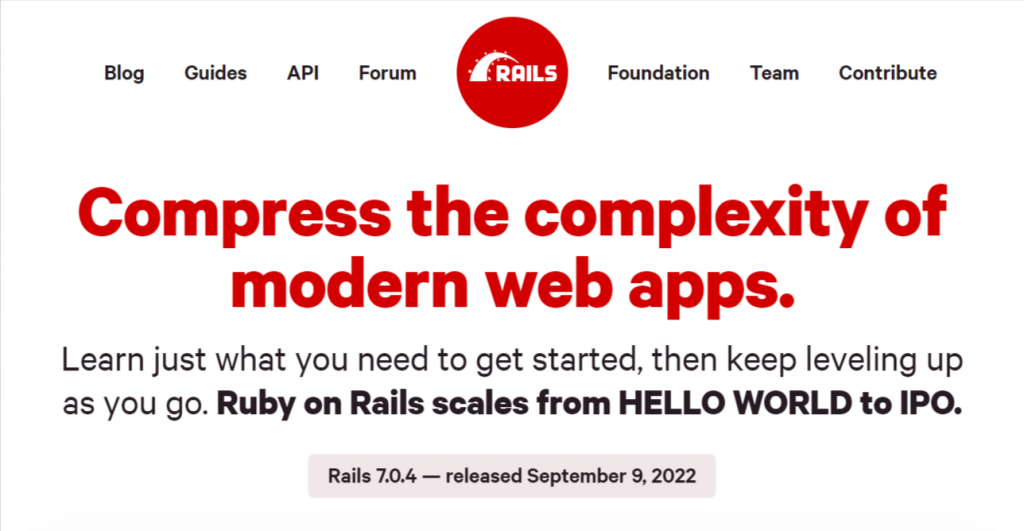
What is Ruby on Rails?
Ruby on Rails is an MVC (model view control) based framework used for web development and app programming on the server side of the applications. Unlike other frameworks, Rails uses the Ruby language to solve problems without requiring a programmer to reinvent the wheel
Ruby on Rails offers ready-made code libraries for tasks such as building forms, menus, and tables.
Benefits Of Ruby on Rails
Cost Effective: As rails is an open-source framework and websites can be constructed and adjusted quickly, less money is spent on the creation and maintenance of it. It is also simple to use from a developer’s perspective.
Speed: It comes with ready-to-use plugins and modules, so developers don’t have to waste time developing boilerplate code.
Easy Change Management: With ruby on rails, altering existing code or adding new features to the site is trivial. Making changes or updates to your site after it has been launched is straightforward and quick.
Secure: Security measures are built within the framework and enabled by default.
Efficiency: Rails employs front-end and back-end abilities to construct web applications. When combined with 3rd party libraries it allows you to develop features incredibly fast.
Rail-based business benefits from fast delivery times and agile development methodology. GitHub, Airbnb, Zendesk, Shopify, Basecamp, Twitch, and Cookpad are some of the few top firms that have adopted Ruby on Rails.
Ruby on Rails developers is always in demand, with high wages showing that ruby knowledge is something that companies are ready to invest in.
Uses of Rails
- Ruby on Rails is ideal for building online stores with complex browsing and purchase possibilities.
- Ruby on Rails may also be used to build powerful stock marketing systems.
- It is also advantageous to utilize Ruby on Rails to develop social media sites.
2. Node.js
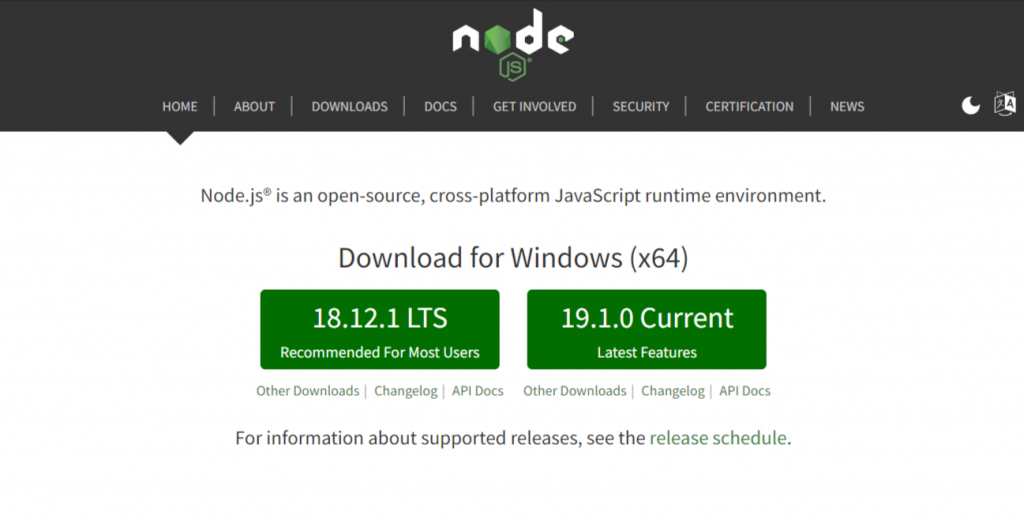
For running web applications outside the client’s browser, Node.js provides an open-source platform that is based on a JavaScript environment. It is used for creating I/O-intensive web applications like video streaming sites and simple page applications and others.
It is used by large established companies and preferred for data-intensive apps as it is an asynchronous, event-driven model.
Features Of Nodejs
Fast: Node.Js is extremely fast. Being built on Google chrome’s V8 javascript engine this library is extremely fast in code execution.
NPM: Node package manager has around 50000 bundles for developers, so whatever functionality is required for an application can be easily imported from NPM.
Data-intensive: All APIs of the node js library are asynchronous, which is non-blocking. It means that the node js-based server never waits for an API to return data. Hence it is perfect for data-intensive real-time web applications.
Better synchronization: Nodejs dramatically reduces the processing time while uploading video and audio files. It happens because it better synchronizes the code between the server and client using the same code base.
The above benefits justify the popularity of the node js platform and why it is being adopted by a large number of organizations and businesses today. Godaddy, IBM, Linkedin, Netflix, and Paypal are some of the most famous Nodejs users.
Node.js is open-source and completely free, used by thousands of developers around the world. It brings plenty of advantages to the table, making it a better choice than other server-side platforms like Java or PHP.
Uses Of NodeJS
- Adding interactive functions to websites. Users can interact with web pages using JavaScript.
- Developing online and mobile applications. Developers may utilize a variety of JavaScript frameworks to create online and mobile apps.
- Creating web servers and creating server applications.
- Extensively used for Game development.
3. .NET
.Net is a free, cross-platform, open-source development framework for building many different types of applications. .Net is cross-platform and supports Windows, Linux, and mac os.
With .Net you can use multiple languages, editors, and libraries to build web, mobile, games, and IoT applications. You can write .Net apps in C#, F#, or visual basics. Whether you write code in any of these three, code will run natively on any OS.
If you are looking for a NET developer for hire then you must ask if they are well versed with C# and F# which will make the development process easier.
Features of .NET
Platform independence: .NET can be used to create any sort of application on just about any platform. Mobile apps built with .NET are compatible with a variety of operating systems, including Android, iOS, Windows, and others.
Improved performance: Because of its fast speed, just-in-time compilation, and increased performance, .NET offers a responsive output. You might be pleased with a great adjustable method and a fantastic dynamic user experience.
Outstanding User Interface: When designing apps, choose an IDE (Integrated Development Environment) that is both efficient and dynamic. It has the best MVC (Model-View-Controller) architecture and outstanding UI controls that enable you to design an engaging application.
Object-Oriented: .NET is built on an Object-Oriented Programming Module. OOP is a developmental approach that includes breaking down software into manageable, smaller sections.
4. ExpressJS
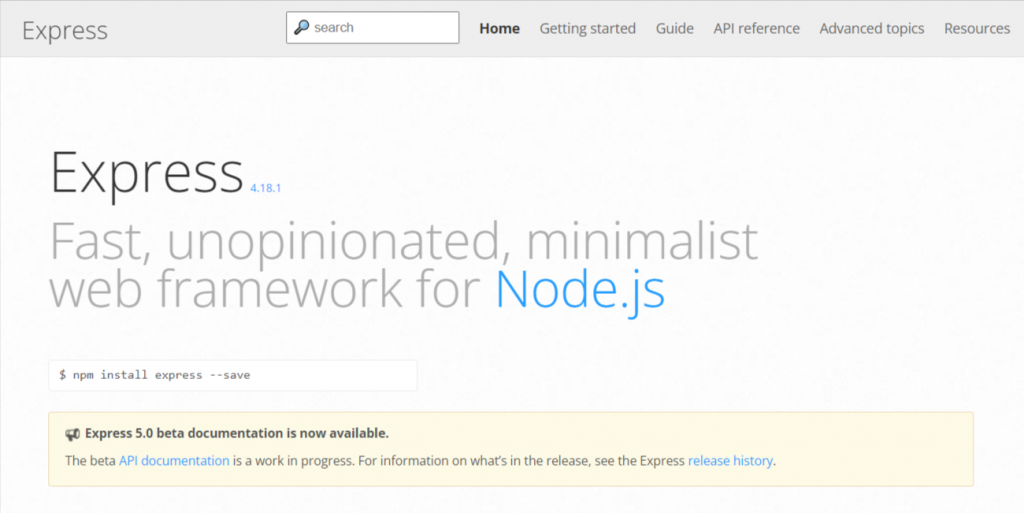
Express is a Node.js framework designed for building APIs, web applications, and cross-platform mobile apps quickly and easily. It has high performance, is fast, and is lightweight. It is widely used as the server-side scripting language.
ExpressJS makes the node js work easier as Express provides a wide range of features to develop both web and mobile applications. It is used to build single-page, multi-page, and hybrid applications.
As Express is written in Javascript, it is very easy to understand for the developer who knows Javascript. Until now, Express is the most popular framework of Node Js. Companies like GoDaddy, Walmart, Storylines, and Flickr use ExpressJS.
Features Of Expressjs
Scale application swiftly: ExpressJs is supported by Node.JS, which enables you to easily scale your application in any way you want by adding nodes and resources to it.
Request handling: Express.js is processing several get requests on a single site. Allows you to build numerous application routes depending on HTTP methods and URLs.
Excellent performance: One of the most striking features of Express is that it allows you to construct high-performance online apps, which improves the user experience.
Rapid development: Using frameworks makes development easier and more flexible. You aren’t required to create completely new code for every feature you want to implement when you use a contemporary framework like Express.
5. CakePHP
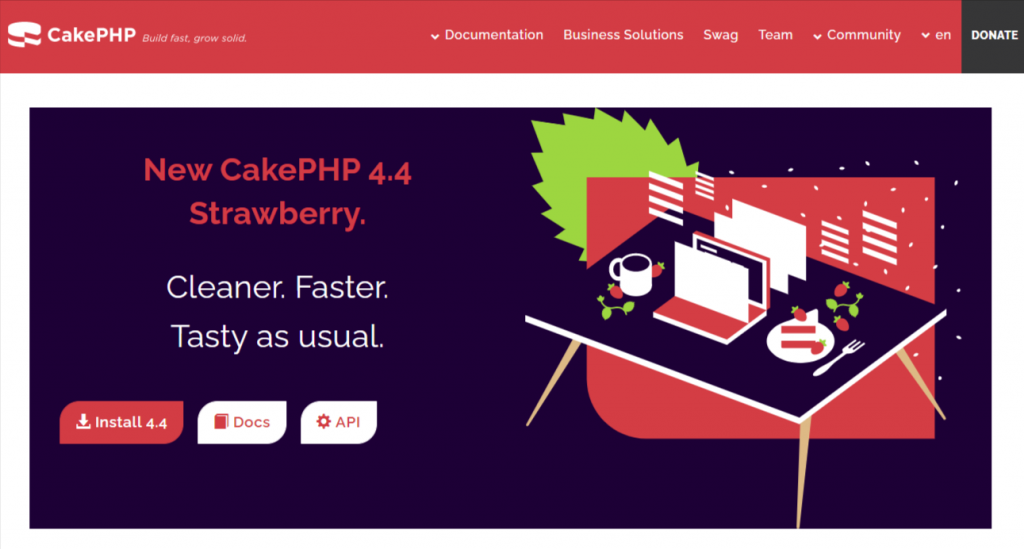
CakePHP is known as the greatest PHP backend framework. It helps you to construct web apps more quickly and simplifies your responsibilities by eliminating the requirement to develop the application from the start.
This open-source MVC framework provides an extensible structure for the whole web app project lifecycle, allowing developers to create powerful and secure online applications.
Features Of CakePHP
Object-relational Mapping: (ORM) is a technique that uses an object-oriented coding language to transform data across incompatible systems.
CakePHP includes an ORM. This explains why dealing with databases and CRUD operations is simpler than anything else
Easily readable: PHP enables the creation of reusable code sections that may be utilized across several projects. Rather than expanding its libraries, features may be transferred over to helpers, extensions, and components.
The cake forge website includes plugin components and aids, which eliminates the need to type everything.
Security: Security is a common issue in development projects. Cake PHP includes both security and authentication. It safeguards security features better than competing technologies. It also includes capabilities to guard against Cross-site requests, Code injection, error handling, and form manipulation.
6. Laravel
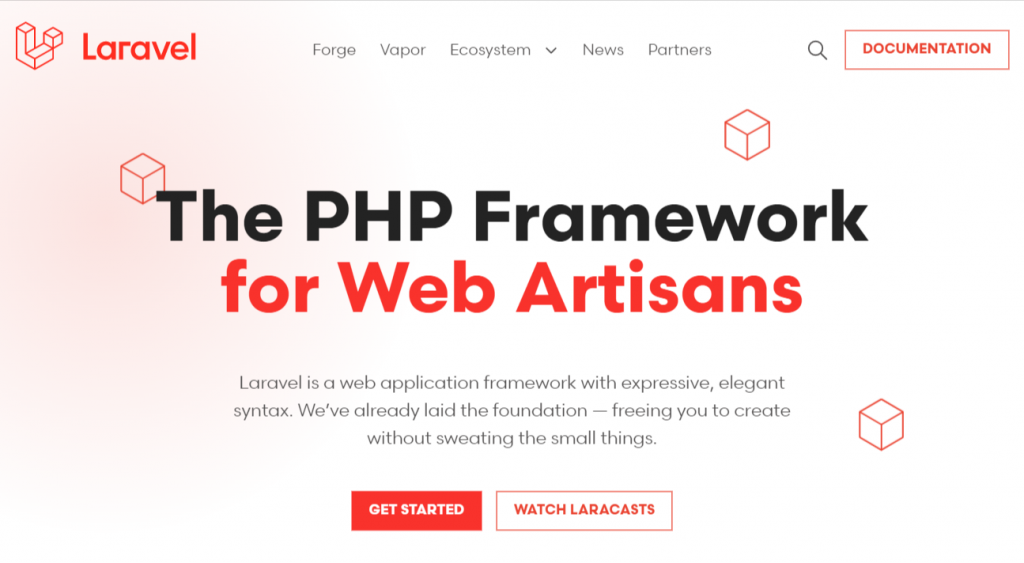
Laravel is a well-known PHP development framework highlighted for its simple and attractive PHP code. It streamlines the production process for activities like forwarding, authorization, queuing, and containerization.
Laravel’s backend has a migration system for manipulating database queries. The laravel PHP platform is better suited for constructing small and big apps with complicated backend requirements. Laravel is preferred by the majority of PHP development service companies.
It meets the open-source app development needs of enterprises. Its huge community assistance guarantees that any programming issues are resolved quickly.
Features Of Laravel
Blade Template Engine: Compared to other PHP templating engines, Laravel’s Blade template engine is a simple yet powerful one. The framework does not add overhead to your web project, and PHP code can be used in views as usual.
Laravel MVC Structure: Laravel is an MVC-based PHP framework that keeps visual layers and functionality separate. Its architectural style distinguishes between the model (logic, data processing), appearance (UI), and controller operations (interface).
Furthermore, it provides a high level of performance, increased security, and scalability.
Extremely adaptable: Laravel offers the ability to create a full-fledged eCommerce site as well as a basic and professional B2B site.
It can design and support several complex functionalities for any site, including password reset and encryption, thanks to its large pre-installed authorization libraries.
7. Django
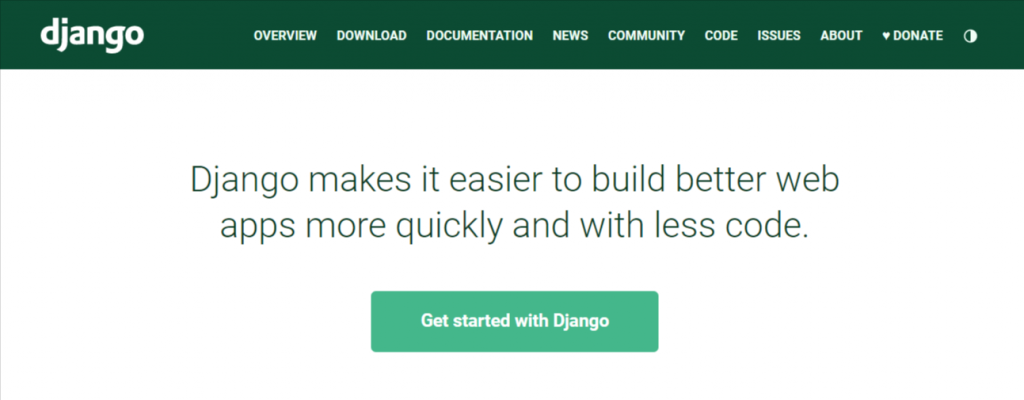
With Python’s Django web framework, you can build and maintain websites quickly and easily.
Django, which was created by professional developers, eliminates the complexity of web development, allowing you to focus on building your app instead of reinventing the wheel.
It is free and open source, has a robust and active community, excellent documentation, and several free and paid-for support alternatives. It also excels at handling a high amount of traffic and transactions.
Features Of Django
Infrastructure: Django is a self-contained and comprehensive framework. It signifies that no other additional solution is required. It incorporates anything from an ORM to a web application. This allows it to access many datasets and shift between them as needed.
RESTful framework: REST is an abbreviation for Representational State Transfer framework, a widely used toolkit for developing web Interfaces. Django has the unexpected advantage of being powerful enough to create a complete API in just a couple of lines of code.
Suitable for any type of project: It is suited for all types of tasks, irrespective of size. A Django app can be an online social platform with a high number of users or a basic online application for managing logbooks.
It can construct anything because it has all of it needed to develop any form of application.
8. Flask
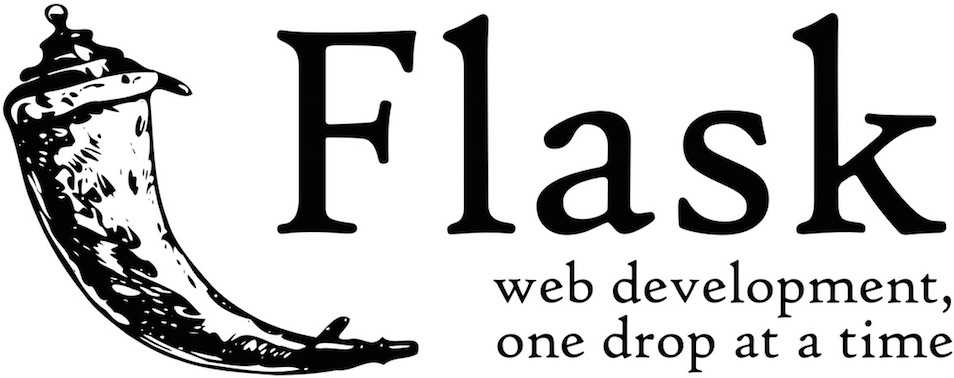
Flask is referred to as a micro-framework due to its compact size and just supplies necessary components. It includes only the necessary components required for web development, such as routing, request processing, cookies, and so on.
The programmer can construct a new module or utilize an application to handle extra functions such as data management. This method eliminates redundant boilerplate code that is never utilized.
Features Of Flask
Scalability: Scalability is crucial, and Flask’s position as a microframework implies that you can use it to rapidly scale web projects.
It’s an excellent option if you want to create an app that starts small but has the potential to develop fast and in ways you haven’t fully thought out yet. Its ease of usage and lack of dependencies allow it to operate smoothly and scale in the future.
Easy to deal with: Just like Django, it can easily find its way around. Web developers are able to develop more quickly without being held back by the system.
At its fundamental, the micro-framework is simple to grasp for programmers, saving time and effort but also providing them greater control over their code.
Documentation: Flask developers will discover several applications and recommendations organized logically.
This encourages developers to adopt the framework, since they may rapidly become acquainted with its many elements and possibilities. The Flask documentation may be found on their official website.
How do these frameworks help with web development?
Several web development frameworks can help make the development process easier. Some popular frameworks include Ruby on Rails, Laravel, and Express.js.
Frameworks can help by providing a structure for your code, as well as libraries of functions that you can use. This can help you to avoid having to write everything from scratch and can make your code more reliable and easier to maintain.
Additionally, many frameworks include built-in testing tools, which can help you to ensure that your code is working as expected. This can help to reduce the amount of time and effort that is needed to debug and fix errors.
Changes will we see in backend frameworks over the next five years
There are a few big changes that we are going to see in backend frameworks over the next five years. One of these changes is the continued rise of microservices.
As more and more companies move towards microservices, we are going to see a corresponding increase in demand for backend frameworks that are designed to work well in this type of environment.
Another big change that we are going to see is the increasing popularity of Node.js. Node.js has exploded in popularity in recent years, and it is now being used by some of the biggest companies in the world.
As a result, we are going to see more and more backend frameworks being designed specifically for Node.js.
Finally, we are going to see a growing trend toward using DevOps tools to manage backend deployments. This trend is being driven by the need to improve efficiency and speed up the development process. As a result, we are going to see an increase in the number of backend frameworks that come with built-in DevOps support.
Challenges that developers will face in the future
The challenges that developers will face in the future are many and varied.
One of the biggest challenges will be keeping up with the ever-changing technology landscape. To stay competitive, developers will need to be able to quickly learn new programming languages and frameworks.
They will also need to be proficient in big data and machine learning.
Another challenge that developers will face is the increasing demand for mobile apps. In order to keep up with the demand, developers will need to become experts in cross-platform development.
They will also need to be familiar with various mobile device platforms and operating systems.
The future is also likely to see an increase in cybercrime. Developers will need to be knowledgeable in security and encryption in order to protect their applications from being hacked.
Overall, the future of backend frameworks looks bright, with continued innovation and increasing demand for these technologies. If you’re looking to stay ahead of the curve, make sure you keep an eye on the latest developments in this area!
Summary
To conclude, we can say that the majority of frameworks discussed above are popularly written in either of three languages that are Python, Node, and JavaScript.
Python, Node.js, and Java are so far among the most popular backend frameworks and will continue to be so in 2023.
Java is known for its stability, security, and robustness, making it a popular choice for enterprise applications. Java is a well-established language that is widely used for backend development. It is a powerful language that can be used for a wide range of applications.
No matter which framework you use, Javascript is a popular language for all developers. When you hire .NET developers or Express or Node, it is required for a developer to know at least the basics of JavaScript.
Python is known for its ease of use and its large community of users and developers. It is a versatile language that is easy to learn and use. It is a popular choice for backend development and is well-suited for web applications and services.
Node.js is known for its scalability and its ability to handle large amounts of data. Node.js is a JavaScript-based platform that is growing in popularity for backend development. It is perfect for developing real-time applications and services.
In 2023, Python, Node.js, and Java will be the top backend frameworks. They offer a wealth of features and benefits and are perfect for any development project.
There are a few key features of these frameworks that contribute to their popularity.
- First, they are all open source, which makes them more accessible and customizable.
- Additionally, they are all modular, which makes them easy to use and scale.
- Finally, they all have large communities of developers who are constantly developing new features and modules.


